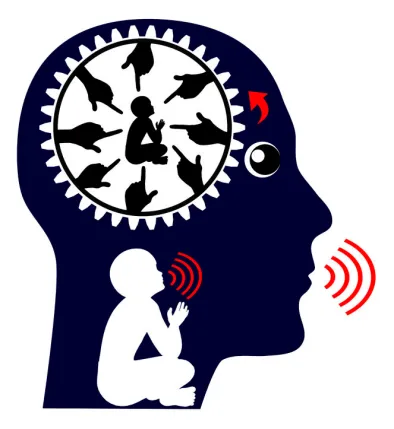As the summer dwindles down, it’s time for a new season to begin. For many parents, this signifies a new transition in their lives, which has unexpected emotional baggage.
Many parents are now encountering for the first OR tenth time, the pain of letting their child go – be it college, boarding school or even the tentative first steps of nursery school or kindergarten. Surprising that the pain of letting go doesn’t seem to diminish as your child grows. It’s always a surprise.
All of these are yet more ‘firsts’ in the parenting journey – the surprising pain of letting your child go off into unchartered waters for the first time. Some parents have described the pain akin to childbirth pain, ripping them up emotionally as their children depart.
The truth is, parenting is a series of “letting go” experiences, each with an equal tug of pain as childbirth. Indeed, to be a parent is to learn to —
nurture and then let go,
nurture and then let go,
nurture and then let go,
—in a series of waves that continue on for a long long time down the road to growing up until they gradually recede.
Surprise! The pain of the moment is almost too much to bear. Surprise! There is almost no one you can share it with. You feel as if you want to announce to the world with tears, “Leo started ________________ today. “ fill in the blank: nursery, first grade, middle school, high school, first day at college. You will likely receive a high five or congratulations from your peers, seeing it as a transition for you into liberation. Oh but what about your aching heart?
For the majority of parents, these transitions can be both gut wrenching and invisible to the outside world as to just how painful this is.
How to cope?
First, know this:
Your paternal or maternal broken heart is utterly normal; this is yet another wave of child rearing. Indeed, to be a parent is to have your heart broken over and over again – and it’s normal and healthy! Sometimes, people reduce your despair as “empty nest” syndrome, a term that doesn’t even begin to cover what you’re going through!
Let’s look at your parent brain to understand the transition. For many years, your parent brain has looked like this:

As your child grows, your parent brain must slowly fill with other matters, or else each transition leaves literally an empty space in your brain/ heart space.
Here are some tips:
FIRST MORNING: make sure you plan a comfort filler for your morning. Know that your heart space needs some comfort today. TAKE THE TIME TO LET YOURSELF BE SAD AND THEN CELEBRATE. Breathe deeply. Practice letting go. Just like Lamaze but this time the contractions are in your heart. Meditation is a strong medium to acknowledge this journey and gain more equanimity.
BEYOND: know that it’s temporary in a way. For most parents, as soon as they see that their child has cheerfully adjusted, a lot of the pain becomes soothed.
HERE ARE SOME TIPS TO SURVIVE AND THRIVE:
- Accept the timing: it’s time to let your little one (or big one) fly. Be sure to let them know you are confident that they can do it! or – share your worries with them, just not the actual morning of the separation. Worries should be discussed well ahead of the actual event. if you are unsure of how to raise these worries, seeking professional help of a supportive therapist, even for one session, can go a long way.
-
Create social support: Social support can be incredibly helpful during times of stress and loneliness, and self-care should be made a priority during difficult transitions. There are practical things you can do to prepare for or manage the transition of children leaving the home. For example, time and energy that you directed toward your child can now be spent on different areas of your life. This might be an opportune time to explore or return to hobbies, leisure activities, or career pursuits.
-
Adjust to your new role! This also marks a time to adjust to your new role in your child’s life as well as changes in your identity as a parent. Your relationship with your child may become more peer-like, and while you may have to give your child more privacy, you can have more privacy for yourself as well.
-
Plan ahead! It’s a good idea to prepare for this transition while your children are still completely dependent on you, or before they leave home (depending on the age of the upcoming separation).
-
Develop yourself: friendships, hobbies, career, and educational opportunities. Make plans with the family while everyone is still under the same roof, such as family vacations, long talks, and taking time off from work to make special memories.
-
Special memories: time to make special memories as a parting gift! Be sure to stick something special in their pocket, be it a felt heart with a magic message, or an extra gift card, something that says “I love you”.
